How a 3,427 mile bike ride around Britain saved one writer's mental health
Simon Parker, author and critically acclaimed travel writer, says that journey by bike around Britain in the height of the pandemic uncovered some of his best stories yet
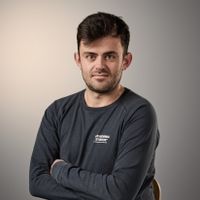
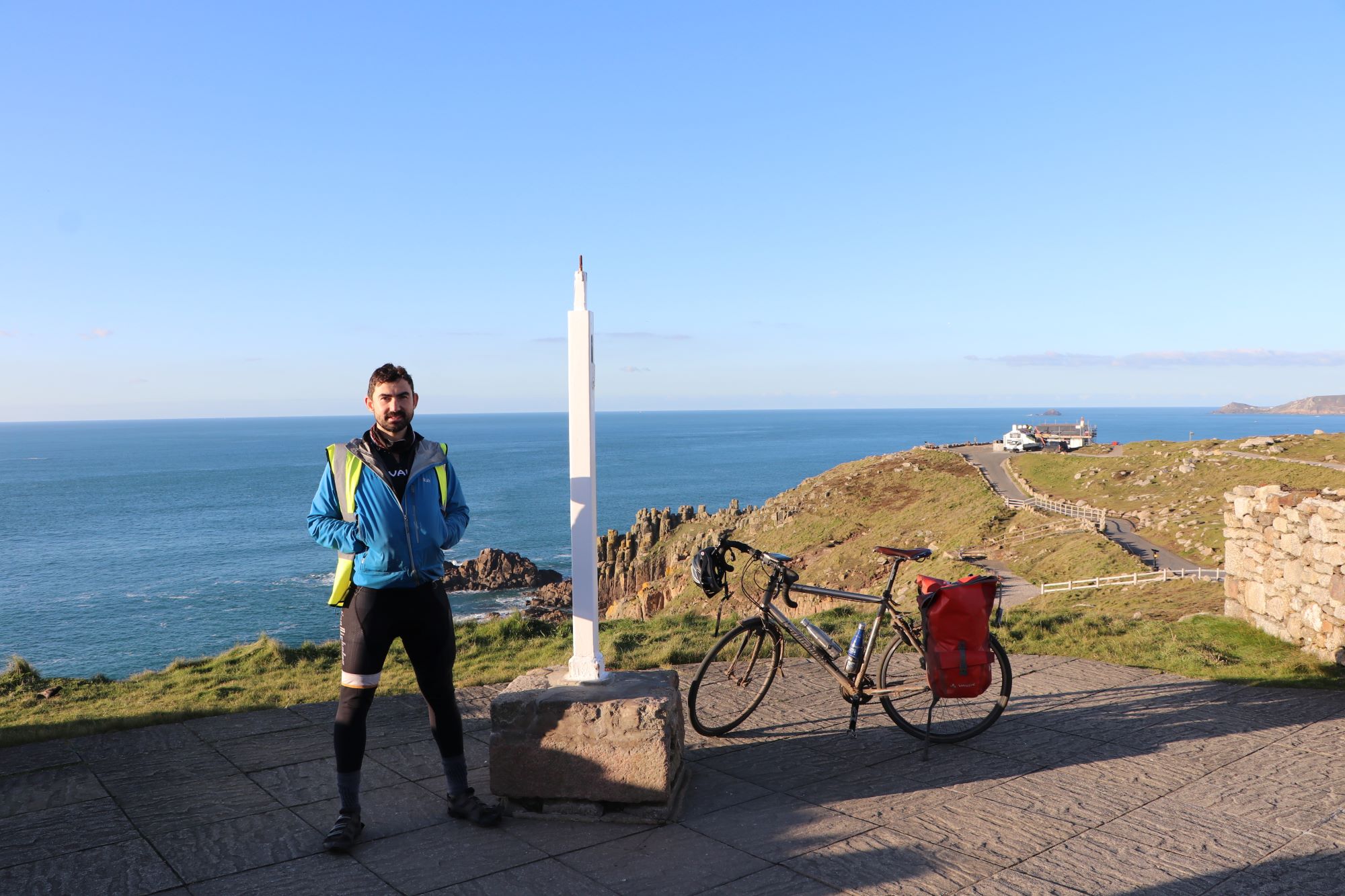
In the dark days of the Covid-inflicted lockdowns, Simon Parker had hit crisis point. A career in travel writing and journalism had vanished into thin air, and shortly afterwards he, like many others at the time, received the news that a close friend had passed away.
It has been well documented that due to the tsunami of sorrow that the pandemic unleashed, cases of anxiety and depression skyrocketed. Simon’s life was no different and he soon found himself feeling the effects of panic attacks and anxiety.
That was until his bike began calling along with the promise of hundreds of stories just waiting to be told across the country.
“I think due to the circumstances that we were in, with social distancing, regional lockdowns and the fact we weren’t really allowed to speak to people inside, being on my bike was just the perfect mode of transport for an adventure around Britain in the pandemic,” Parker tells Cycling Weekly.
“I was also dealing with my own mental health crisis, and I think any cyclist will be able to empathise that there’s something very therapeutic and soothing about the forward motion of being on a bike.”
“It did wonders for my mental health when I, like millions of other people during the pandemic, went through depression, stress and anxiety,” he adds.
In what eventually totalled a journey of 3,427 miles, Parker travelled the length of the country to the far flung corners of Shetland and the Muckle Flugga lighthouse, all the way to the depths of Lands End and the Isles of Scilly.
The latest race content, interviews, features, reviews and expert buying guides, direct to your inbox!
He would eventually document his experiences of the epic ride in “Riding Out”, his first book which was released earlier this year.
Parker explains that documenting his journeys in such a way was only possible due to being on two-wheels.
“I don’t think any of us should ever overlook the power of the great outdoors for benefiting our physical and psychological well being,” he says. “There is something about having the sun on your back, the wind in your hair and the rain on your face that makes human beings feel better.”
“I think in that sense, we’re still very prehistoric in terms of our needs and requirements in life. When I went out on this journey and I was cycling for 60-70 miles a day and then camping on a beach, it felt like an incredibly rewarding and simple way of living,” he explains.
“I think the lives that most of us live, most of the time, are unnecessarily complicated and filled with extra stuff that none of us really need. The comforts of modern life are also the things that make life really complicated. When you strip that down, adventure becomes a much more rewarding experience.”
CORNWALL 'TOUGHER THAN THE ROCKY MOUNTAINS'
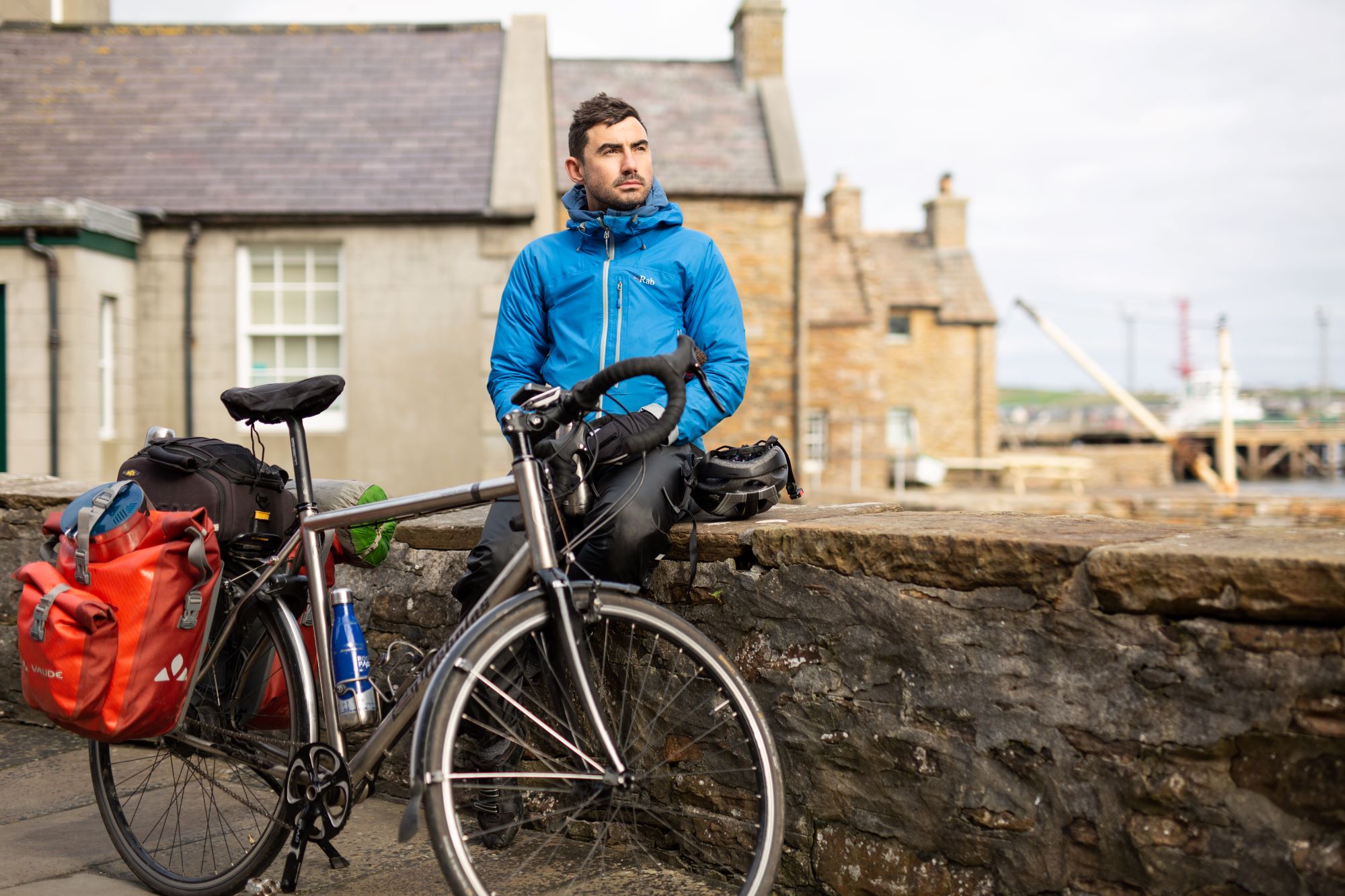
Parker isn’t new to adventure cycling, far from it. As part of various projects he has cycled across America as well as the length of Scandinavia and across Europe. Although even after riding in the Rocky Mountains, he still says Cornwall provided some of the toughest terrain he’s ever experienced.
“Cornwall and Devon are incredibly tough places to cycle,” Parker says. “I’ve cycled all over the world and Cornwall is some of the toughest cycling I’ve done anywhere in the world. In the Himalayas, the Pyrenees, the Rocky Mountains, you get these wonderful switchbacks which gradually move you up and over a mountain. Then in Cornwall, you’re either going sharply up a hill or down, there’s no happy medium whatsoever.”
“I’m not ashamed to say that in Cornwall, when it got really bad, on 20-25% gradient hills with me carrying 20 kilos worth of kit, I got off and pushed! There’s no other way of doing it,” he jokes.
“The sort of adventure cycling that I do isn’t about breaking any records. I try to move slowly and take in the world around me. I’m not on Strava, I’m not trying to promote a super masculine form of cycling. It’s about hopefully seeing from the perspective of the saddle, an interesting world play out in front of me,” Parker adds.
At one point in the book, Parker is joined by fellow long distance cyclist and author Markus Stitz in the Scottish borders. In 2016, Stitz, a friend and regular collaborator with Mark Beaumont, became the first person to cycle around the world on a single speed bike. Beaumont on the other hand recently set a new record on the NC500.
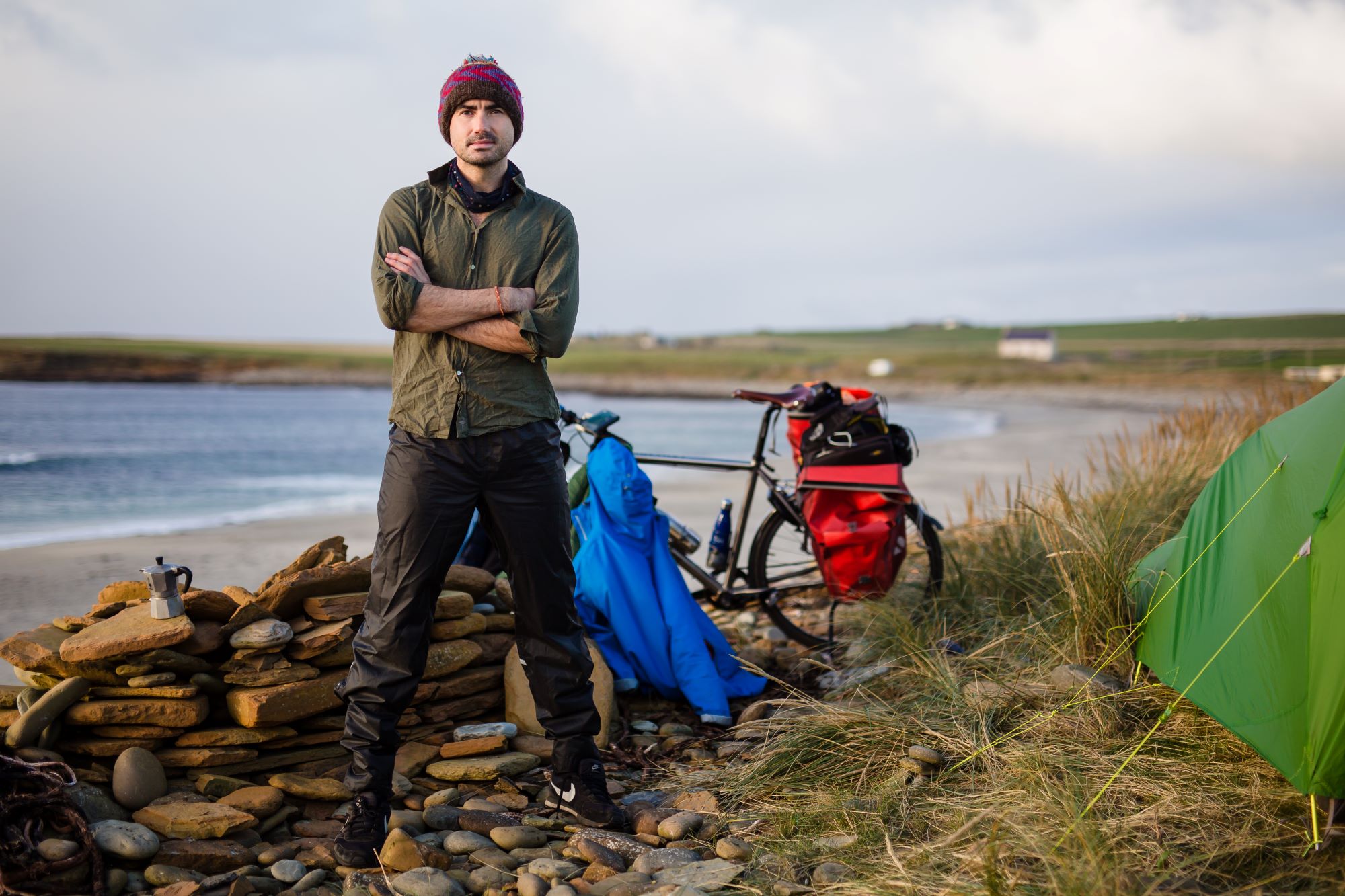
Despite being joined by Stitz for part of the ride, Parker admits that he couldn’t put himself through the ordeal of attempting to set similar records.
“I have huge amounts of interest and respect for the world record breaking projects that Markus and Mark have achieved over the last 10-20 years, it’s incredibly impressive. I always like reading about people doing things like that,” Parker says. “There’s definitely a little bit in the back of my mind which wonders what it would be like to try and break a world record, and cycle around the world in the fastest possible time.”
"Although at the same time, that’s not really me,” Parker jokes. “I’m not really a cyclist!”
Looking back on all of the landscapes that he explored by bike during the pandemic, one place in particular continues to return to Parker’s mind as one to bikepack in once more. Shetland. He explains that the terrain on offer is something that he’d recommend every long distance cyclist experiences.
“Getting up to Shetland for a week is a must. There’s these epic rolling mountains, big glens and lochs to ride around. Riding from the Muckle Flugga lighthouse right at the top, all the way down to the Sumburgh Head lighthouse at the bottom,” he says. “You can also do it on the cheap too because in Shetland, Orkney and mainland Scotland, you have the right to roam. You’re legally, as a Briton, allowed to wild camp. You can camp in national parks, next to lochs and on hundreds of amazing beaches.”
Bike theft in Britain has been on the rise in recent years. Even with having cycled around the entire British Isles, Parker says that he only feared for his bike's safety on one occasion, and so locked it up once.
“I tried to always follow a rural route where I could. I think in rural areas, you tend to have a much better chance of your bike not being stolen,” he says. “I only locked my bike up once, and that was for five minutes on the south coast! I guess i got quite lucky on the ride, but touch wood, I haven’t had a close call.”
“I hope that's the same on rides next year.”
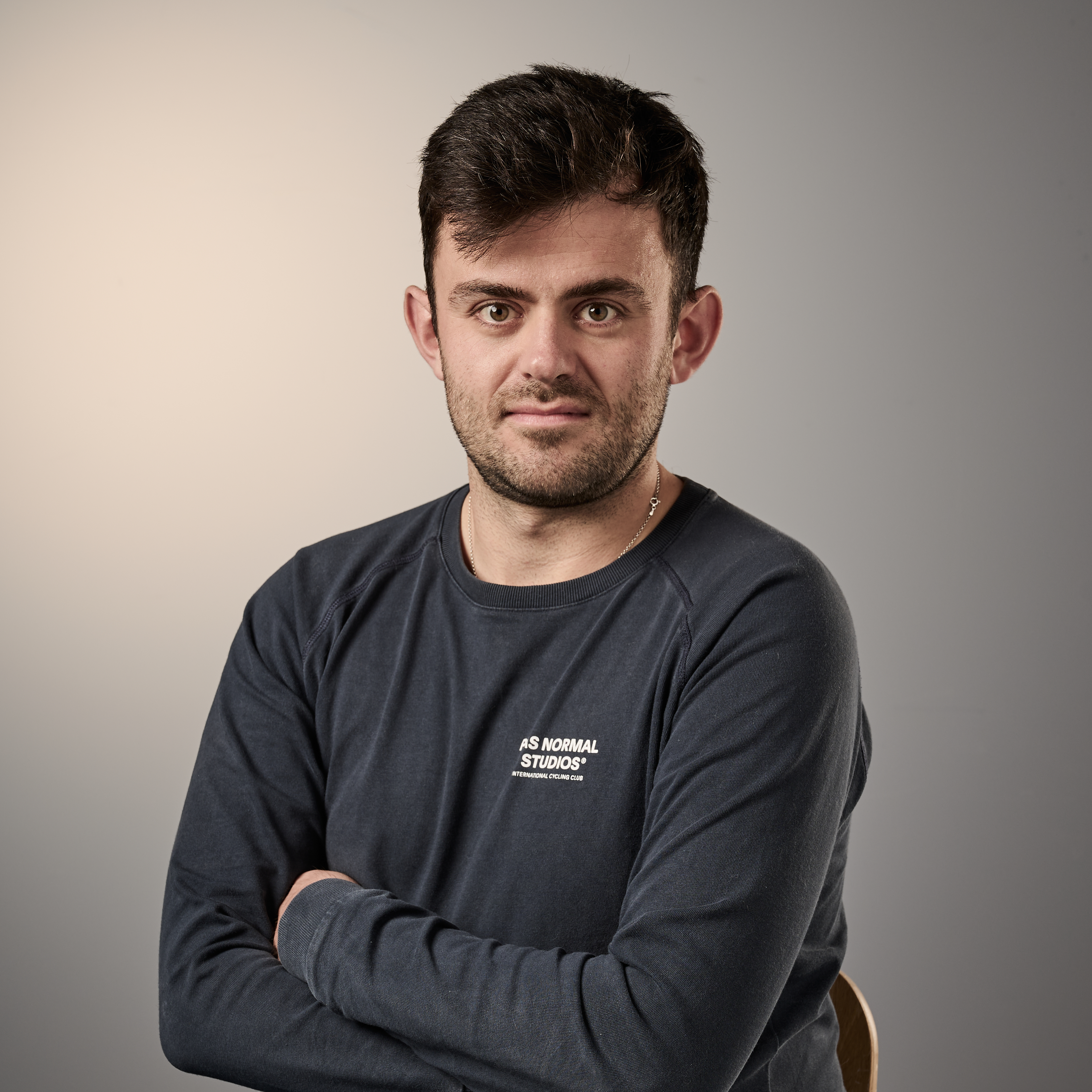
After previously working in higher education, Tom joined Cycling Weekly in 2022 and hasn't looked back. He's been covering professional cycling ever since; reporting on the ground from some of the sport's biggest races and events, including the Tour de France, Paris-Roubaix and the World Championships. His earliest memory of a bike race is watching the Tour on holiday in the early 2000's in the south of France - he even made it on to the podium in Pau afterwards. His favourite place that cycling has taken him is Montréal in Canada.